Discover The Running Explained Podcast
The Running Explained Podcast

The Running Explained Podcast
Author: Running Explained
Subscribed: 689Played: 32,161Subscribe
Share
© Running Explained
Description
Hosted by multi-certified run coaches and fitness professionals, Amanda Katz and Nick Klastava, The Running Explained Podcast is your go-to resource for actionable insights, expert tips and motivating advice to help you become the best runner you can be. We take a science-backed approach to running and fitness, offering practical strategies for athletes at all stages of their journey. Whether you're struggling with injury, wondering how to fuel your long runs or trying to nail your race day strategy, we've got you covered with expert interviews, listener questions and so much more.
209 Episodes
Reverse
This isn’t your typical clickbait-y “smash a marathon PR with just 3 runs a week” take. In one of our all-time favorite episodes, we're bringing back an insightful conversation with coach and elite mountain runner Kim Nedeau, who dives into how endurance athletes can thrive with a low run volume, high overall training volume approach.Whether you're managing injury, burnout, or just looking to train smarter, this episode is packed with practical insights for making every mile (and every cross-training session) count.What You'll Learn:What is "low run volume/high training volume" training?Who this training framework is best forManipulating training intensity distribution with lower running volume and higher cross-training volume"But isn't more mileage always better?"How is this framework different from multisport, i.e. triathlon, training?Ways to configure a training week in this frameworkHow we're seeing more competitive and elite runners excel on lower run volume with high training volumeChapters:(00:00) Introduction to Kim Nedeau, CES(07:37) Transitioning to Low Volume Training(11:01) Alternative Training Methods(14:06) Determining Cross-Training Duration & Intensity(20:24) Alternative Training vs Easy Runs in Zone 2(27:51) Running Volume is Relative(31:54) Sustainability in Training(35:47) The Benefits of Alternative Exercise(42:55) Minimum Running Frequency(49:00) The Importance of Consistency(51:24) Measuring Effort in Alternative Training Methods(01:00:23) How to Measure ProgressMeet Kim:Website: https://traininginclined.com/Instagram: https://www.instagram.com/kimnedeau_traininginclined/?hl=en--🚨 1:1 COACHING SPOTS OPEN NOW 🚨Ready to finally train with a plan that’s built around YOU? If you're chasing a big goal, whether it's your first marathon or a shiny new PR, our incredible coaches are accepting new 1:1 coaching clients!ㅤOur Coaching Include:✅ Personalized training✅ Weekly support + adjustments✅ Strategy, structure, and accountability✅ Expert coaching to help you actually hit your goalsHead to https://www.runningexplained.com/runcoaching to learn more! Research & production assistance by Sophie van Leeuwen
In this episode, I sit down with Mike Ko, better known online as Kofuzi, to talk about his evolution from everyday runner to one of the most trusted voices in running shoe reviews on YouTube. We dive into the intersection of gear, performance, and personal preference, and how the right shoes can change everything about your running experience.What You'll Learn:How Kofuzi turned his casual runs into a full-blown content careerWhy there’s no one-size-fits-all approach to running shoesHow to think critically about reviews and gear hypeThe role of comfort, tech, and transparency in today’s running gearWhat to look for when building your own shoe rotationChapters:00:00 Introducing YouTube Creator Kofuzi10:09 Kofuzi’s YouTube Origins: From Runner to Reviewer14:46 Authenticity, Honesty, and Ethics Online19:32 Negative Reviews Online22:29 Individual Preferences with Running Shoes29:49 What to Look For in Running Shoes38:15 Quality vs Quantity43:53 Developing a Shoe Rotation48:09 How Long Do Running Shoes Last?55:16 How Mileage Impacts a Shoe01:05:10 Advancements in Shoe Technology01:12:23 What's Next for Kofuzi and Where to Find HimConnect with Kofuzi:Instagram: instagram.com/kofuziYouTube: https://www.youtube.com/kofuzi--🚨 1:1 COACHING SPOTS OPEN NOW 🚨Ready to finally train with a plan that’s built around YOU?✅ Personalized training✅ Weekly support + adjustments✅ Strategy, structure, and accountability✅ Expert coaching to help you actually hit your goalsGo to https://www.runningexplained.com/runcoaching to learn more! Research & production assistance by Sophie van Leeuwen
We’re back with another fantastic re-run featuring the powerhouse herself, exercise physiologist and hybrid athlete Dr. Alyssa Olenick (@doclyssfitness)!Hybrid training isn't just about picking between strength or endurance – it's about embracing BOTH for both health and performance goals. Dr. Olenick breaks down the interference effect, explains the shifting application of training intensity, and goes through hybrid training in the off-season all the way through your pre-race taper PLUS many more insights and educational tidbits along the way!What You'll Learn:What hybrid (or concurrent) training is and how it blends strength and endurance for optimal fitness.How to manage the "interference effect" and fatigue when training for multiple goals.Why strength training is essential for runners for both performance and injury prevention.How to approach fitness with curiosity, NOT perfection.The importance of seasonal training and post-race recovery for long-term health and performance.Why group fitness classes can support your goals but shouldn’t replace focused strength or endurance work.Chapters:(00:00) Introduction to Hybrid Training(03:48) Defining Hybrid Training(11:35) Understanding the Interference Effect(20:30) Training Tolerance and Goal Setting(23:54) Benefits of Hybrid Training(29:59) The Importance of Strength Training for Runners(35:42) Overcoming the Fear of Lifting(44:23) Building Confidence in Strength Training(45:14) Embracing Imperfection in Training(46:47) The Role of Group Fitness Classes(51:30) Understanding Hybrid Training(55:25) Balancing Running and Lifting(01:00:06) The Importance of Recovery(01:04:58) Long-Term Fitness Perspectives(01:09:42) The Process Over Perfection(01:16:11) Finding Joy in the Journey-- Meet AlyssaDr. Alyssa Olenick is an Exercise Physiologist, sports nutritionist, weight lifter, and ultra runner. She is known for her high energy and sassy approach to bringing science to your training in a no-nonsense way. Alyssa has helped thousands of women crush big lifting goals, cross race finish lines, or even do both.www.doclyssfitness.com-- 🚨 1:1 COACHING SPOTS OPEN NOW 🚨Ready to finally train with a plan that’s built around YOU?ㅤIf you're chasing a big goal, whether it's your first marathon or a shiny new PR, our incredible coaches are accepting new 1:1 coaching clients!ㅤ✅ Personalized training✅ Weekly support + adjustments✅ Strategy, structure, and accountability✅ Expert coaching to help you actually hit your goalsHead to https://www.runningexplained.com/runcoaching to learn more! Research & production assistance by Sophie van Leeuwen
We're bringing back an amazing re-run episode with Coach Nick Klastava from Season 3, and it's just as relevant and inspiring now as it was then. If you enjoy this episode, check out Nick’s other podcast, Between Two Coaches, which he co-hosts with Coach Amanda Katz (also from Running Explained). You can find it on all major streaming platforms.Comparison is the thief of joy... so why do we spend SO much time & energy comparing ourselves to others? To other runners, to other versions of ourselves. Coach Nick Klastava is here this week to help us understand WHY breaking free from the comparison trap is actually one of the best things you can do as a runner, why copying another runner's training isn't very helpful, why paces aren't the be-all-end-all, and what we can all learn from the best of the best.--🏃♀️ Running Explained is here to help you run smarter, get faster, and feel more confident in your training.From trusted education to real-world coaching support, we’ve got what you need: no fluff, no gimmicks, just evidence-based guidance that works.🎙 Podcast & Blog: Free, accessible, no-BS running education📨 Downloadable Training Plans: Built for real life, not perfection 🏅 1:1 Coaching: Personalized guidance with expert support🔗 Start here → runningexplained.comResearch & production assistance by Sophie van Leeuwen
Dr. Marie Witt is BACK for her fifth time on the podcast (aka the Five-Peat!), and this episode is a little more casual and a whole lot of fun. We’re talking about… well, a little bit of everything:– Gummy bear fueling and why sour candy hits different– What happens when your miles slow way down in the summer heat– Shoes, Hobbiton, Regency costumes, and other delightful detours– The “minimum effective dose” approach to strength training– And why doing less is often the smartest move a runner can makeWe talk about the pressure to do more, what it really means to be consistent, and how to respect your body without losing your goals. And yes, we get a little nerdy, because obviously. It’s us.If you need a reminder that running is supposed to be fun, that you don’t have to earn your worth in mileage, and that play is part of the process... this one’s for you.💥 LAST CHANCE: ROAD TO RACE DAY KICKS OFF AUG 4!If you’re training for the Philly Half or Full and want personalized coaching, a supportive group, expert guidance, and race weekend fun—this is it! Don’t miss your chance to join.👉 runningexplained.com/roadtoraceday—🔗 Links & Resources:Check out her FREE Achilles Recovery Toolkit!Research & production assistance by Sophie van Leeuwen
This week, I'm joined by the one and only Jon Levitt, host of For the Long Run and Long Run Labs, endurance athlete, and resident expert in both running and running-adjacent banter.What starts as a lighthearted chat about favorite running shoes (RIP Pegasus 34), run fuel (blue raspberry forever), and dream races (Tokyo, anyone?) turns into a deeply thoughtful conversation about what it means to push yourself to the edge... and what happens when you go past it.We dive into:🎯 The anatomy of a moonshot: Was the Breaking4 Project to break 4 minutes in the mile by a woman a marketing stunt or a meaningful milestone?🧠 The shared psychology of suffering: Why elite runners and mid-packers alike know what it feels like to “bleed” in the third lap💥 What makes a mile so compelling (and painful) to run and watch🥵 Downhill marathons, Boston qualifiers, and the not-so-free speed myth💬 What we talk about when we talk about toughness, exclusivity, and why not every goal should be easyPlus: a very scientific game of “Strava Caption or Shenanigans,” Taylor Swift references, and a reminder that running a hard mile might just change your life.🧭 Resources & Links:Follow Jon on Instagramhttps://www.instagram.com/jwlevittListen to For the Long Run and Long Run Labshttps://shorturl.at/i7pRU----🏃♀️ Running Explained is here to help you run smarter, get faster, and feel more confident in your training. From trusted education to real-world coaching support, we’ve got what you need: no fluff, no gimmicks, just evidence-based guidance that works.🎙 Podcast & Blog: Free, accessible, no-BS running education📨 The Weekly Stride: Your favorite running newsletter📲 The Run Club App: Training plans + strength work in one place📋 Downloadable Training Plans: Built for real life and real results🏅 1:1 Coaching: Personalized guidance with expert support🔗 Start here → runningexplained.comResearch & production assistance by Sophie van Leeuwen
We’re going back to basics—because let’s be honest, most runners are still underfueling!In this special anniversary episode, I’m bringing back the very first guest I ever had on the show: Registered Dietitian and running coach Cortney Berling to talk (again) about RUNNING NUTRITION 101! If you’ve ever wondered…Should I eat before my run? Why? When? What??How much fuel do I ACTUALLY need during long runs?Why is post-run fueling so dang hard?And wait... am I underfueling even if I’m not losing weight?This one’s for you.We cover:🥯 Pre-run fueling (yes, even early morning runs!)🔋 In-run fueling strategies & how to train your gut🍳 What post-run nutrition should look like (even when you're not hungry)⚡ Fueling myths that won’t die🧠 Why underfueling might be the real reason you feel overtrained or stuckWhether you’re training for your first 5K or your 100th marathon, this is a conversation every runner should hear.Mentioned in this episode:Cortney’s Instagram: @eatwell.runbetterLearn more at eatwellrunbetter.comOur original episode from Season 1! "s1/e02 Running Nutrition with Cortney Berling, RD" --🏃♀️ Running Explained is here to help you run smarter, get faster, and feel more confident in your training.From trusted education to real-world coaching support, we’ve got what you need: no fluff, no gimmicks, just evidence-based guidance that works.🎙 Podcast & Blog: Free, accessible, no-BS running education📨 The Weekly Stride: Your favorite running newsletter📲 The Run Club App: Training plans + strength work in one place📋 Downloadable Training Plans: Built for real life, not perfection 🏅 1:1 Coaching: Personalized guidance with expert support🔗 Start here → runningexplained.comResearch & production assistance by Sophie van Leeuwen
This week, I’m joined by a runner who brings a ton of insight and real-world experience to the table: Dr. Logan Sherman, sports chiropractor, marathon champion, and chairman of the BMW Dallas Marathon.We get into a topic that doesn’t get nearly enough airtime in performance circles: SLEEP. Not just “get more of it,” but why it matters, what it actually does for your body, how to use it as a training tool (not just a recovery tool), and how your wearable data might be telling you more (or less) than you think.Logan shares his journey from being an overweight middle schooler nicknamed "Jelly Roll" to becoming a sub-elite marathoner and 2015 Dallas Marathon champion, and how his relationship with running, racing, and recovery has evolved through different seasons of life.We talk about:Why sleep is foundational for performance, recovery, and injury preventionHow to adjust your training when your sleep is trash (without panicking)What HRV and breath rate can tell you about your recoveryUsing data without obsessing over it (yes, even when your Whoop says you're 50% recovered on race morning)The emotional side of race day, sleep anxiety, and learning to let go of perfectionAnd why it’s okay if your fueling sometimes looks like mac & cheese off your kid’s plateIf you’ve ever struggled with balancing sleep, life, and training, Logan's perspective is one you're going to appreciate!Research & production assistance by Sophie van Leeuwen
In this solo episode, I'm FINALLY tackling one of the most important (and least sexy) topics in training: training load. What it is? Why should you care? And how can you make sure you're living in the "juuuuuuust right" zone! Most of us are so focused on paces and mileage (or kms) targets that we miss the bigger picture: how much stress your body is actually experiencing and accumulating from your training. And if you’re stuck in a cycle of “train hard → crash → repeat,” this episode is especially for you.I break down everything from acute vs. chronic training load, to how wearable devices, like your Coros running watch, calculate your load using things like "TRIMP" and heart rate, and to how to use heart rate variability (HRV) as a recovery gauge. We’re talking spreadsheets, ratios, metrics, and yes: how your “just right” is totally different than someone else’s!What training load actually means (and what it doesn’t)How to avoid the dangers of "too much too soon" (even if your mileage says you should be OK)Why intensity (and training intensity distribution) is more important than distance aloneHow the acute:chronic ratio of your training load tells you when you’re on the onramp to the highway to the danger zoneWhat the 10% “rule” misses (and why it’s not always that simple!)The difference between “I ran 10 miles!” and “I worked HARD for 10 miles!”Tools like TRIMP, TSS, and HRV: what they tell you and how I use themThe deets on my own quick & dirty training load spreadsheet before I had fancy toolsWhy managing training load is especially important for self-coached runners!!TOP SOUNDBITES:“Your body doesn’t track distance; it tracks stress.”“That hero week you’re so proud of? It might be the reason you need a nap for the next 10 days.”“This is about learning what ‘just right’ looks like for you—because too much breaks you, and too little stalls you.”--------------------🌟 This episode is brought to you by my friends at Coros, who make amazing watches ⌚ that have all the tools you need (with none of the fluff) to manage your training like a pro, no matter WHAT your goals are! If you're looking to upgrade (or you’re just tired of guessing), check out the Coros Pace 3 (that's what I wear!), and don't forget to use code RUNEXP at checkout for a FREE second strap when you buy your watch! 🌟🖱 Coros.com---------------Join the Patreon: patreon.com/runningexplained for bonus episodes, book club, and more!Join the Road to Race Day: Philly team if you’re training for the Philadelphia half or full marathon!Curious about HRV or training load tools? I’m always happy to chat more—DM me on Instagram or shoot us an email!Research & production assistance by Sophie van Leeuwen
What would happen if you decided to just… run around the world?No, seriously. That’s what Marie Leautey did. She’s only the second woman in history to complete a verified World Run—crossing four continents, coast to coast, on foot. She pushed a stroller (not with a baby - important note), slept in a tent, dodged kangaroos, used bear spray in Montana, and somehow didn’t get injured while running over 28,000 kilometers.In this episode, Marie and I talk about:How a random doodle at work turned into a 2.5-year global running adventureWhat actually counts as a “run around the world” (yes, there are rules! No, they don't make you run on water!)Staying injury-free while running 700+ marathons in a row (the “body scan” trick is genius)The joy of running without pace goal… or time goals… or really any data at allBeing mistaken for a mom with a baby in a stroller (and how that probably kept her safe)Why she got fined $2,600 over a rogue scallion at the Australian borderAnd how to tell the difference between giving up… and just hitting a (global pandemic) Pause ButtonMarie’s story is one of those rare ones that’s impossible to summarize and even harder to forget. It’s about running, yes, but also freedom, persistence, problem-solving, and learning how to really listen to your body (and your gut).📖 Her book Lootie’s World Run: The Extraordinary True Story of the Fastest Woman to Have Run Around the World is wonderful; part memoir, part field guide, part “wait, she did what?!” Get your copy today! Research & production assistance by Sophie van Leeuwen
This week I’m joined by Jeff Horowitz—"recovering attorney" turned running coach, author of Think Like a Runner, and someone who’s run over 200 marathons (yes, really!). Jeff shares stories from his global racing adventures (including an ultramarathon in Cairo where he was chased by wild dog s), his journey back from a devastating femur fracture, and why he thinks every runner—no matter their pace—deserves to take themselves seriously.We get into:Why so many runners struggle to call themselves runnersHow your relationship with running evolves over timeWhat it means to truly trust your body again after injuryHow to define success beyond speed or finish timesWhy you do deserve good gear, a coach, and the “serious runner” stuff, no matter your paceThis was one of those conversations that just felt like a long exhale. If you’ve ever questioned whether you’re a “real” runner, or wrestled with how to stay in love with this sport as things shift and change, this episode is for you📘 Grab Jeff’s book Think Like a Runner!------------------------------👟 The Running Explained Podcast is here to help you train smarter, run better, and understand the why behind what you’re doing. Whether you’re chasing a PR or just trying to make sense of your training plan, we’re here for the long run.🎙️ Want more episodes, early access, and bonus content? Join the podcast Patreon!patreon.com/runningexplained🧠 Learn more, explore resources, and check out training plans at runningexplained.comResearch & production assistance by Sophie van Leeuwen
Let’s get back to basics! In this episode, I’m breaking down the three main types of runs you'll see in your training - easy runs, moderate-intensity workouts like tempo or threshold, and high-intensity speed work - and explaining what each one is actually supposed to do for your fitness. If you’ve ever wondered, “Am I running this right?”, this one’s for you.Once you understand what each run is meant to accomplish, the next step is learning how to execute it correctly, and that’s where simple alerts on your running watch can be a game-changer. I’ll explain how I use pace and heart rate alerts to help build confidence, stay in the right zone, and most importantly, start enhancing our internal understanding of what those different intensities feel like. This is how you move from chasing numbers to actually training smarter.🎉 I’m also incredibly excited to announce my official partnership with COROS, the running watch I’ve personally used and loved since 2022! COROS makes it so easy to set up the exact alerts I talk about in this episode. You don’t need to pre-program fancy workouts (although I love those too), just a few simple tools can help you train more effectively and confidently. And now, when you use code RUNEXP at coros.com, you’ll get a free second strap with your watch purchase!👟 In This Episode:What easy, tempo, and speed runs are designed to doHow to use watch alerts to guide effort (not just chase paces)Why learning what effort feels like makes you a stronger, more confident runnerThe tools I use on my COROS Pace 3 watch to keep training dialed inHeart rate & pace alerts to create effort “guardrails”.RPE as the long-term goal (and how alerts help you build that awareness)🎁 COROS Discount:Get a free second strap when you use code RUNEXP at checkout on coros.com➡️ Add a watch + a strap to your cart➡️ Enter RUNEXP promo code➡️ Extra strap = FREE!📬 Stay Connected:💬 Weekly coaching tips: FREE newsletter The Weekly Stride🎙️ Bonus content & early access: PatreonResearch & production assistance by Sophie van Leeuwen
An ankle sprain can put a serious crimp in your style, especially when it happens two days before race day. In this episode, I’m joined by Dr. Lauren LaPierre, physical therapist, running coach, and trusted resource for all things injury rehab, to break down what it actually takes to recover from a sprained ankle and get back to running (properly!)In this conversation, Lauren breaks down what a sprain actually is (yes, it’s more than “I rolled my ankle”), how to assess its severity, and why conservative care should almost always be your first move. She walks us through each stage of her own recovery, from using compression and regaining range of motion to eventually reintroducing running through careful, progressive loading. She also shares the mental and emotional toll of dealing with a derailed season and how to give yourself the grace and space to process it.Whether you’re dealing with an acute injury, navigating the gray area between “healed” and “ready to run,” or simply want to understand how to support your future self (or athlete clients), this episode is packed with wisdom, relatability, and practical takeaways.IN THIS EPISODE, YOU’LL HEAR ABOUT:The different grades of ankle sprains and what they actually meanHow to handle the first 24–72 hours post-injury (and what to avoid)Why swelling and pain don’t always equal more damageHow to use pain as a guide... without letting it become a barrierThe critical rehab phases: isometrics, strength, neuromuscular control, and plyometricsThe real timeline for returning to running safelyCommon mistakes runners make in trying to come back “too soon”The emotional weight of missed races, lost momentum, and re-setting goalsABOUT LAUREN:Dr. Lauren LaPierre is a physical therapist, running coach, and the founder of The Personalized Running Doc, where she helps runners bridge the gap between rehab and performance. She’s also the creator of the Revive Running Retreat and a passionate advocate for educating runners on how their bodies work—and how to keep them working well.Learn more about Lauren’s work and get in touch: thepersonalizedrunningdoc.comFollow her on Instagram: @thepersonalizedrunningdocRegister for the 2025 REVIVE Retreat: REGISTER HEREResearch & production assistance by Sophie van Leeuwen
Are you making food choices based on science… or on social media? I'm joined by Zoë Rom and Kylee Van Horn, the duo behind the podcast Your Diet Sucks, to unpack the complicated, often confusing world of diet culture in endurance sports. With Zoë’s background in journalism and Kylee’s clinical expertise as a sports dietitian, they team up to challenge the nutrition narratives athletes are constantly fed—from TikTok trends to supplement fads!We explore:The origins of Your Diet Sucks and what inspired their myth-busting missionHow cultural “stickiness,” media algorithms, and identity shape what runners believe about foodWhy low-carb, fasted training, and “super supplements” aren’t always the answerThe importance of critical thinking over one-size-fits-all nutrition adviceWhy perimenopausal and postmenopausal women are often targeted by questionable messagingThe science we don’t have yet—and what they wish we knew more aboutYou’ll also hear their thoughts on Shaq-sized gummies, how we got so confused about carbs, and what it really means to fuel well as a runner today.Spoiler: There’s no one “right” way to eat—but understanding where your ideas come from might just change everything. Research & production assistance by Sophie van Leeuwen
Ever wonder how much your running form really matters? In this episode, ultra runner and coach Sam Stow joins me for a deep, honest, and slightly nerdy conversation about the underrated importance of movement efficiency, body awareness, and technique. We dig into why how you move matters just as much as how far or how fast you go—and how the right tweaks to your movement patterns can unlock more enjoyable, injury-resistant, and sustainable running.We also get into:Why there’s no one right way to runThe common mistakes many runners make (hello, overstriding 👀)Why glute activation matters way more than you thinkHow barefoot running can actually help you feel your body betterWhat “mindful movement” actually means in trainingAnd why balancing performance goals with fun is the long gameSam’s got a fascinating story—including a world record barefoot marathon on a non-motorized treadmill!—and a coaching philosophy that’s equal parts grounded and empowering. If you're ready to run smarter, feel better, and actually enjoy the process? This one’s for you!Learn more about Sam & work with him:www.thefunctionalstep.comwww.poprunning.com.auwww.instagram.com/sam.poprunningResearch & production assistance by Sophie van Leeuwen
In this episode of the Running Explained podcast, I’m breaking down a fascinating new study on mindfulness and running performance—and why I think this is something every runner needs to hear!I’ll walk you through the research (don’t worry, it’s not boring!), explain how mindfulness training actually rewires your brain (hi, neuroplasticity!), and share what this means for your training, racing, and day-to-day running mindset. Spoiler: your mental game matters. A lot.I’ll also talk about what I’ve seen in my own coaching—how anxiety, mental fatigue, and emotional dysregulation sabotage performance—and how small, consistent mindfulness habits can completely change how you experience your running.Here’s what I cover:Why mental fatigue makes your long runs feel harder than they shouldHow mindfulness builds emotional resilience (yes, you can train your brain to handle hard stuff better!)What the “flow state” really is—and how to get there more oftenReal-world mindfulness strategies you can actually use (no chanting required)Why cognitive anxiety crushes decision-making during races—and how to fix itHow even recreational runners (not just elites!) benefit from mental trainingIf you’ve ever felt like your brain is holding you back more than your legs, this episode is for you.READ THE RESEARCH!Effects of group mindfulness intervention on high-level distance runners: a quasi-experimental studyTimestamps:00:00 – Intro & announcements10:11 – The study design & how they tested mindfulness20:10 – What the results showed (big changes!)29:52 – What this means for you as a runner36:25 – Mental fatigue & why it matters46:48 – Mindfulness techniques that actually work52:14 – How to start building mental skills now57:20 – Reflecting on your runs like a coachIf you’ve been ignoring your mental training, it’s time to change that. Hit play and let’s talk about the brain side of running.About Your HostElisabeth Scott is a running coach, educator, and the founder of Running Explained, where she helps runners train smarter, run stronger, and enjoy the process. After getting sober at 29, she laced up her running shoes with the goal of finishing a 5K—and never looked back. Since then, she’s gone on to complete multiple races, including marathons with a Boston Qualifying time, all while deepening her expertise in endurance training.With a science-based approach, Coach Elisabeth is passionate about making complex running concepts accessible and actionable for runners of all levels. Her coaching philosophy centers on building a strong aerobic base, improving running efficiency, and developing a whole-human approach to training that prioritizes consistency, injury prevention, and sustainable progress.Through Running Explained, Elisabeth offers training plans, online courses, and 1:1 coaching designed to help runners achieve their goals while avoiding the common pitfalls of overtraining, underfueling, and burnout. Whether you’re training for your first half marathon or chasing a new PR, her guidance will help you train smarter, race stronger, and love the journey.📲 Learn more at RunningExplained.com 📢 Follow on Instagram: @runningexplainedResearch & production assistance by Sophie van Leeuwen
In this new episode, I’m joined by Running Explained coaches Nick Klastava & Jessie Gruca as we dive into the realities of traveling to races with your family. We chat about everything from balancing carb-loading with kids’ snack schedules to managing the emotions of either bringing your kids along or leaving them at home. You’ll get practical tips on everything from international race travel to including your little ones in race-day events, and how to turn race weekends into lasting family memories.Whether you're a seasoned parent-runner or gearing up for your first race trip with kids, this episode has got you covered. Jessie and Nick share their own stories of guilt, stress, and joy, offering advice on flexibility, clear communication, and the importance of showing up to race weekend with a solid plan. It's all about making race day work for you and your family, no matter what the weekend throws your way!www.runningexplained.comResearch and production assistance by Sophie van Leeuwen
This week’s episode is a throwback to one of your favorite formats—a good old-fashioned Q&A! But it’s also extra special because I’m officially launching the Running Explained Patreon! 🎉 I break down what the Patreon is, what’s included at each membership level, and how joining directly supports me and the future of the show.After that, we dive into your questions! I’m answering everything from how long it takes to rebuild your aerobic base after injury, to whether you need to run a 20-miler when training for a half marathon, and what to do when your heart rate zones don’t seem to match your workout paces.In This Episode I Talk About:What the Running Explained Patreon is and how you can joinThe difference between feeling “normal” and “race fit” after injuryWhy a 20-mile long run probably isn’t necessary for half marathon trainingIf you need to add more running days to finally break that sub-2:00 halfWhat a “workout sandwich” really means (and why it matters!)How to manage heart rate zones in the summer heatWhat might be holding back your 5K progress (spoiler: it’s not just speedwork)The real meaning behind lower heart rate at the same paceHow to return to training after illness without blowing up your planWhat to do when your heart rate doesn’t match the threshold pace your coach gives you🎙️ The Running Explained Patreon is here!Want bonus episodes, ad-free listening, priority Q&A, voting on guests and topics, and more?Join the community at 👉 patreon.com/runningexplainedResearch and production assistance by Sophie van LeeuwenLet’s Connect:Website: www.runningexplained.comInstagram: @runningexplained
In this episode, I’m joined by Alex Parker and Meredith Root, co-owners of Tactic Nutrition—two amazing athletes and coaches who are runners AND... compete in CrossFit, strength training, cycling, and more. They’re here to talk about how embracing your identity as a multi-sport athlete can not only help prevent burnout but also make you a better overall athlete.But it’s not just about doing different sports for the sake of variety. We also talk about WHY we tend to pigeonhole ourselves into a single spoint, struggle with burnout when we try to do it all at the same time, and dive into fueling properly for all these activities. Alex and Meredith share how their approach to nutrition helps athletes fuel for multiple sports without feeling restricted or overwhelmed.What You’ll Learn in This Episode:Ditching the "One-Sport Only" Mentality: Alex and Meredith open up about their journey from focusing solely on one sport to embracing multiple sports. They talk about how stepping away from just being “a runner” has been a game-changer for their identity and overall health.How to Fuel Like a Multi-Sport Athlete: When you’re juggling running, strength training, and cycling, fueling is key. Alex and Meredith share their strategies for staying energized and performing well across different sports.Tactic Nutrition: With their company Tactic, Alex and Meredith focus on helping athletes build a positive relationship with food and understand how to fuel for different activities. It’s not about restrictive dieting—it’s about nourishing your body for optimal performance in whatever sport you love.Preventing Burnout & Finding Balance: Running is great, but is it enough? We discuss how incorporating other sports can prevent burnout, give you new goals, and improve your performance, all while keeping the joy in your training.Strength Training & Cycling: No, you’re not less of a runner if you add strength training or cycling to your routine. Alex and Meredith explain how these activities have actually helped them become better, more resilient athletes.Reclaiming Your Identity: Is your identity tied too tightly to running? We talk about how easy it is to lose the fun in fitness when you feel like you “have to” do something, and how adding variety can reignite your love for movement.Resources Mentioned in This Episode:Tactic Nutrition: Instagram | WebsiteFollow Alex on Instagram: @aaparker1Follow Meredith on Instagram: @meredith_rootKey Takeaways:It’s important to find balance—embracing multiple sports in your training not only prevents burnout but also enhances your performance as an athlete.Strength training, CrossFit, cycling - or whatever other sports you enjoy - can help you become a stronger, more resilient runner (and athlete overall!).If you’re feeling burnt out or stuck in a “one sport only” mentality, it might be time to explore new ways of training that bring back the fun and help you stay motivated.It’s OK to try different things. Whether it’s a different sport or mixing up your running routine, variety is not just good for your body—it’s great for your mind too.Want More?If this episode resonated with you, make sure to subscribe to The Running Explained Podcast for more conversations on how to make running and fitness enjoyable, sustainable, and rewarding. And if you’re stuck in a training routine that feels more like a chore than fun, share this episode with a friend who might be looking for a change!Research and production assistance by Sophie van Leeuwen
This week on The Running Explained Podcast, we’re talking about a different kind of destination—the kind that comes with epic views, cultural immersion, and no clock in sight. I’m joined by Michael Mazzara, CEO of Rogue Expeditions, who’s on a mission to redefine what it means to run and travel.Michael shares how Rogue Expeditions creates immersive, joy-filled running experiences around the world—think Sahara Desert sunrises, winding trails through the Atlas Mountains, and post-run tajines in Morocco. These trips aren’t about chasing PRs; they’re about community, connection, and experiencing the world on two feet.We talk about what goes into curating these off-the-beaten-path adventures, how he went from “not a runner” to leading global running trips, and why sometimes the best way to explore a new place… is just to lace up and run it.Also! I’m beyond excited to share that I’ll be joining Rogue Expeditions in Morocco this November—and you can come too! If you've ever dreamed about turning your run into a passport stamp, this is your chance! runningexplained.com/morocco In this episode, we dig into:How Michael’s unexpected running journey turned into a global adventure businessThe difference between racing and running to exploreWhat makes these trips so unique, welcoming, and transformationalBehind-the-scenes of designing routes in Morocco, Patagonia, and the DolomitesWhy running can be the best way to see the worldTips for preparing for a running trip (spoiler: it’s not about doing 80-mile weeks)And more!Come Run Morocco With Me!I’ll be heading to Morocco this November with Rogue Expeditions for a week of incredible running, culture, and connection—and you’re invited. Want to be on the interest list? Head to runningexplained.com/morocco for all the info!Resources & Links:Rogue Expeditions → rougexpeditions.comInstagram → @rougexpeditionsStay Connected:Follow me on Instagram → @runningexplainedCoaching, training plans & more → runningexplained.comLoved the episode? Take 30 seconds to rate, review, and subscribe—it helps more runners find the show and say YES to more adventure!Research and production assistance by Sophie van Leeuwen


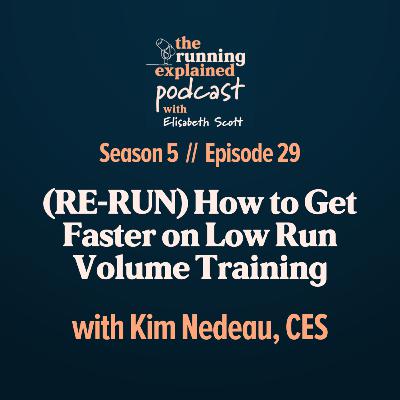
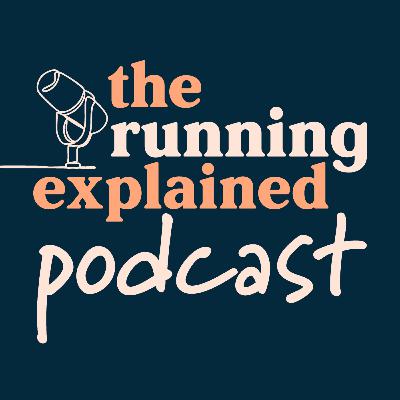
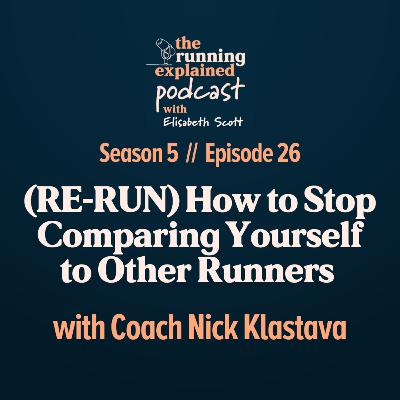

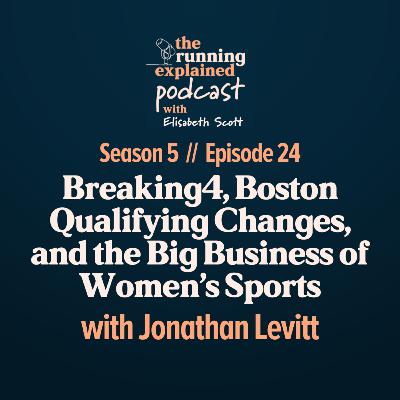
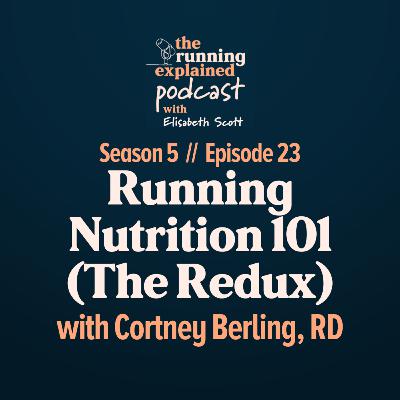
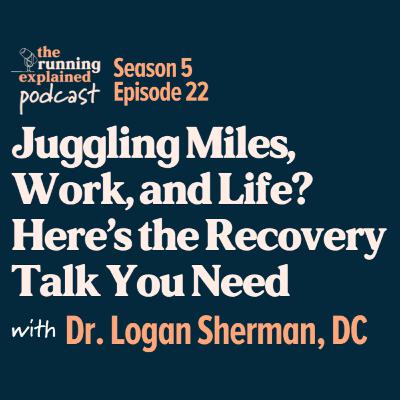
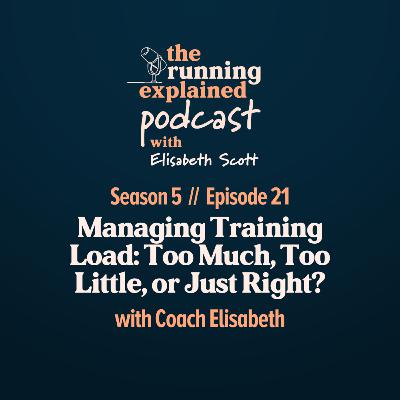
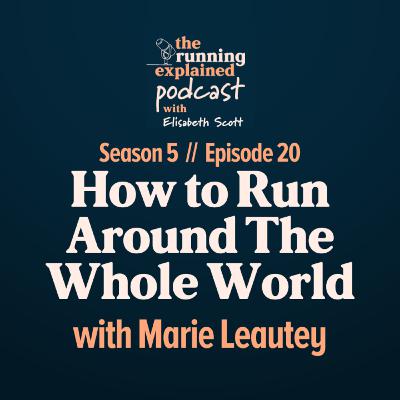
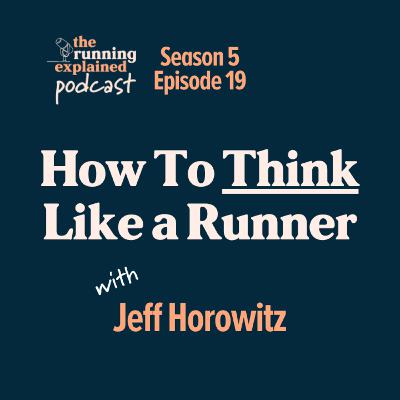
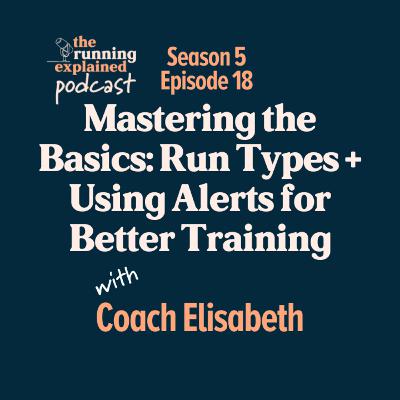
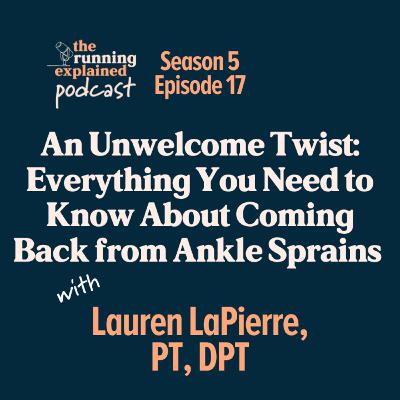
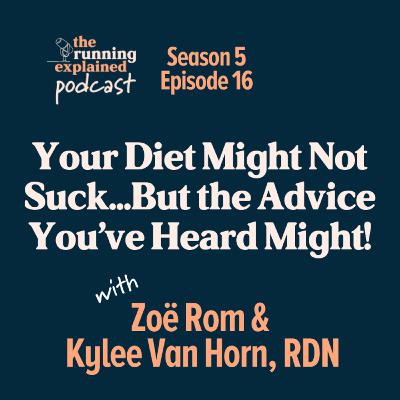
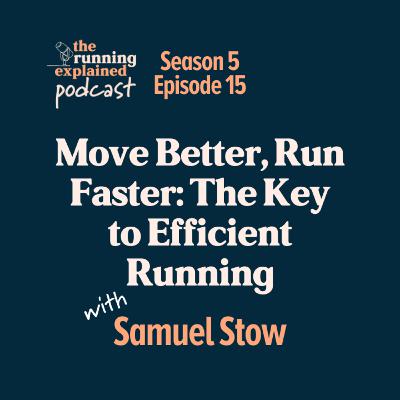
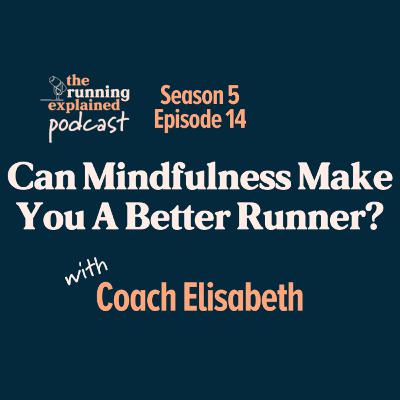
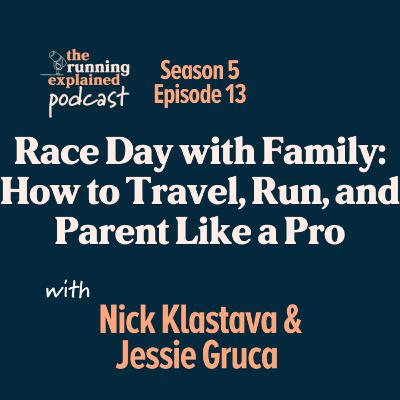
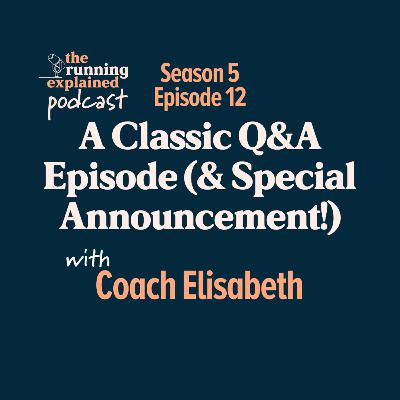
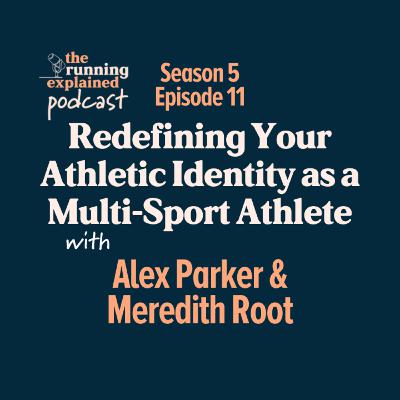
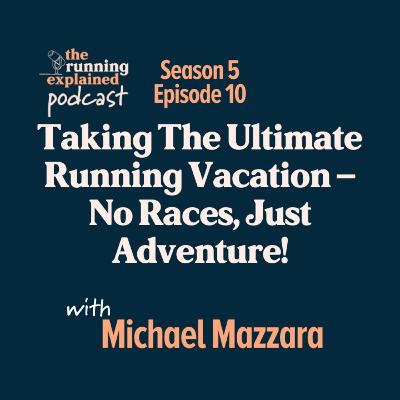



this is so interesting because I get so many mixed advice about nutrition which now I see are bad advice